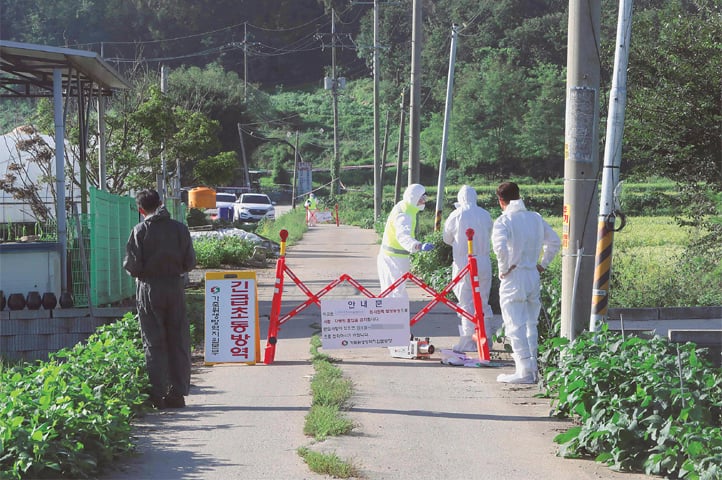
SEOUL: South Korea on Tuesday reported its first cases of African swine fever, becoming the latest country hit by the disease that has killed pigs from China to North Korea, pushing up pork prices worldwide.
Five pigs found dead at a farm in Paju, a city near the inter-Korean border, were confirmed to have been infected with the virus, an official with Seoul’s agriculture ministry said.
“At this point, it’s too early to confirm if the case stemmed from the North,” the official added.
Seoul’s agriculture minister Kim Hyun-soo said 3,950 pigs from three farms in Paju were to be culled.
The virus is not harmful to humans but causes haemorrhagic fever in pigs that is almost always fatal.
There is no antidote or vaccine and the only known way to prevent the disease from spreading is a mass cull of affected livestock.
The confirmed cases in the South came around three months after Pyongyang told the World Organisation for Animal Health that dozens of pigs had died from the disease at a farm near the Chinese border, according to the South’s agriculture ministry.
In June, Seoul said the disease was “highly likely” to enter the country from the North and ordered fences to be erected at farms along the border to prevent possible contact between pigs and wild boar.
There are around 6,700 pig farms across South Korea and pig farming accounts for 40 percent of the total livestock industry.
In May, the UN’s Food and Agricultural Organisation said pork prices had risen by up to 50 percent both in China and on the Chicago futures exchange as a result of the outbreak.
Last month, it said almost five million pigs in Asia had died or been culled because of the spread of the disease.
Published in Dawn, September 18th, 2019













































Dear visitor, the comments section is undergoing an overhaul and will return soon.